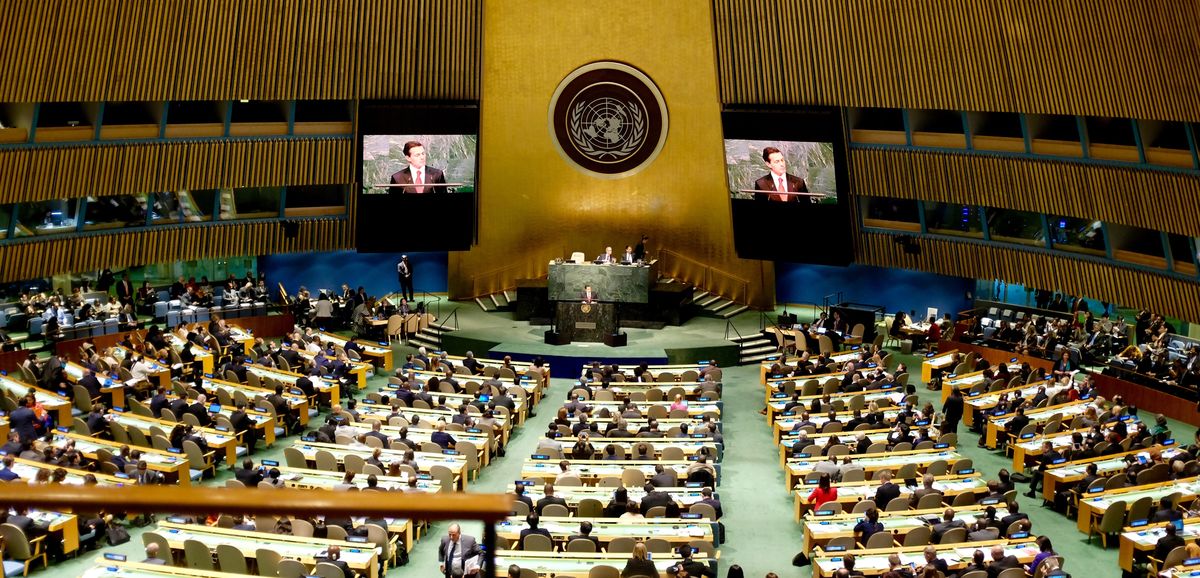International nuclear weapons ban adopted
With more than 120 countries voting for the treaty, the U.N. adopted a nuclear weapon bans.

The United Nations adopted Friday a treaty that bans nuclear weapons.
Church and Society works with the International Campaign to Abolish Nuclear Weapons on this work. As ICAN pointed out, “Until now, nuclear weapons were the only weapons of mass destruction without a prohibition treaty, despite the widespread and catastrophic humanitarian consequences of their intentional or accidental detonation. Biological weapons were banned in 1972 and chemical weapons in 1992.”
The United Methodist Church has long called for the elimination of nuclear weapons. (See Resolution 6129, “The United Methodist Church and Peace.”) Church and Society Staff represented this position at two sessions of the United Nations.
The meetings were dynamic and constructive. Delectations built off of each other’s suggestions. The countries invited input from individuals and groups who support the ban.
The outcome was a treaty that has both a real effect and broad support. More than 120 countries approved the treaty.
Despite broad international support, countries with nuclear weapons — Britain, China, France, India, Israel, North Korea, Pakistan, and the United States — boycotted the sessions and are refusing to sign the treaty. Several countries under the protection of the United States through NATO, as well as Japan and Australia, have also refused to sign.
While nuclear weapons states have pledged to demolish their nuclear arsenals, as required by the Nonproliferation Treaty, they’ve shown no signs of actually pulling this off. Quite the contrary. The U.S. plans to spend more than $1 trillion over the next 30 years to “modernize” its nuclear weapons.
As the United Methodist Book of Resolutions says, “The danger of a nuclear holocaust remains as long as nations maintain nuclear weapons.”
We must do all that we can to eliminate this threat. Urge your governments to ratify this historic treaty.